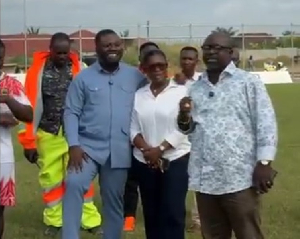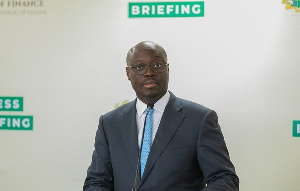Mr Bright A.K Lawoe, Gushegu Municipal Director of Education (DE) has urged stakeholders in the education sector to adopt the use of Jolly Phonics methodology to enhance quality education in the municipality.
Jolly Phonics is a comprehensive programme, based on the proven, fun and muliti-sensory synthetic phonics method that gets children reading and writing from an early age
. He said pupil’s inability to read and write well at an early age hinders on their full development of building a strong foundation, therefore resulting in their poor performance.
Mr Lawoe said this in an interview with GNA in Gushegu in the Northern Region and noted that there was the need to enhance education in the area.
He said though the municipality has a number of infrastructure, it was imperatively challenged with inadequate infrastructure to accommodate the increasing number of student population.
Mr Lawoe said there were 60 Kindergarten, 106 Primary schools, 22 Junior High Schools (JHS) and one Senior High School (SHS) whiles the private schools were 9 Kindergarten, 10 Primary, one JHS and one SHS in the area.
He indicated that the total enrolment figure at the kindergarten stood at 5,649, primary 16,186, and JHS 3,692 whiles SHS records 2,017 in both categories of boys and girls.
Mr Lawoe said the municipal assembly has assisted education in the area by undertaking some projects including; the construction of a 3-unit classroom block with auxiliary facilities at Wantugu, Gushegu, Zamanshegu, as well as Kpatinga.
“Some reasons for the poor performance of students include; inadequate committed and dedicated teachers, absenteeism, poor accommodation for teachers, inadequate supervision by circuit supervisors as well as inadequate infrastructure”, he added.
He lauded Plan-Ghana, UNICEF, NORSAC, Camfed-Ghana, World Vision, Markaz Al-Bishara as some of the Non-Governmental Organizations (NGO’s) for supporting education in the municipality by providing scholarships to needy pupils, implementing the Complementary Basic Education (CBE).
The implementation of Water, Sanitation and Hygiene (WASH), educative programmes on sexual reproductive health, provision of water storage facilities intended to contribute immensely towards enhancing education in the area.
Mr Lawoe appealed to the Municipal Assembly to sponsor more female teachers into Teacher Training Colleges and motivate them to accept posting to remote areas in order to improve quality education delivery in the country.
General News of Sunday, 6 January 2019
Source: ghananewsagency.org













